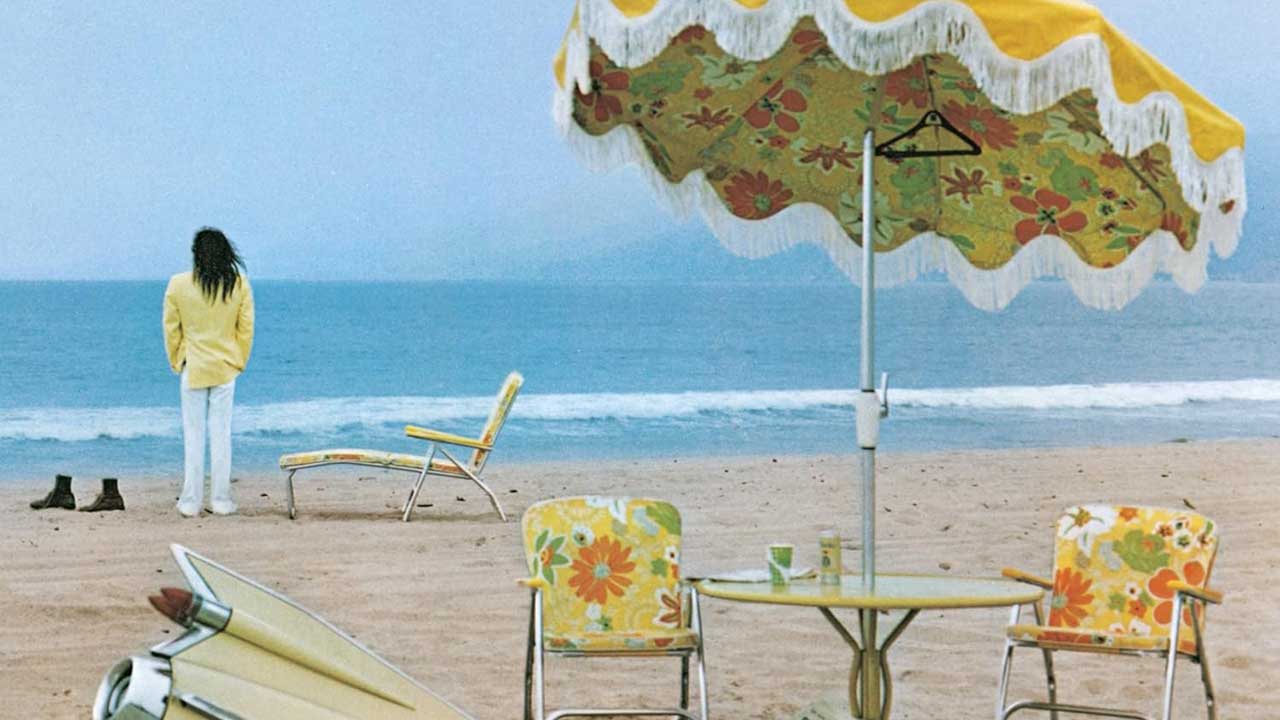
One of the defining works from Neil Young’s first imperial phase, On the Beach finds our frazzled superstar hippie hero drifting further away from the slick mainstream sounds of his L.A. contemporaries. Released in 1974, two years after the gargantuan commercial success of Harvest, it’s the final entry in his deliberately career derailing ‘Ditch Trilogy’, that raw series of radio-unfriendly albums in which he basically recorded himself having a prolonged nervous breakdown.
Following on from Time Fades Away and Tonight’s the Night – which was recorded before On the Beach, but released afterwards – it’s a similarly bleak, stoned and bleary howl at the moon in which Young wrestles with his ambivalent feelings about stardom (the acerbic For the Turnstiles and the burned out title track, in which Young makes doing a radio interview sound like the most desolate thing on earth) while documenting the broiling insanity of America in the mid-1970s.
The utterly spooked and sinister Revolution Blues is written from the perspective of Charles Manson himself. Haunting album closer Ambulance Blues is an enigmatic epic (key lyric: “It’s hard to say the meaning of this song”) which nevertheless encapsulates the record’s core themes: paranoia, alienation and an aching need to escape from the present.
Young was on such an inspired song-writing streak at this point, he was seemingly able to pluck indelible melodies and imagery from the ether at will. An apocalyptic masterpiece.







